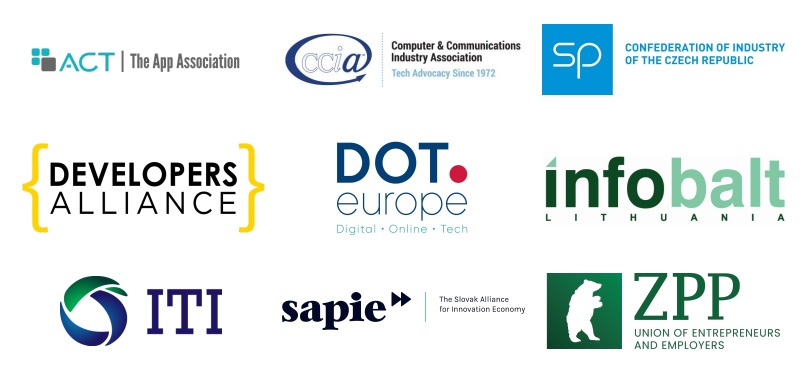
Dear Commissioner Breton,
Dear Commissioner Reynders,
Our associations represent a broad coalition of startups, SMEs, and technology companies. We are writing to you in the context of the revision of the existing Directive on the liability for defective products (PLD) and the proposal for a directive to adapt liability rules to Artificial Intelligence (AI Liability Directive). We support the underlying objective to ensure a high level of legal certainty for companies and trust for consumers. We therefore request that the European Commission strive to ensure that the PLD and the AI Liability Directive are balanced and proportionate for all stakeholders, in conjunction with the applicable existing and future legislation. As such we take the liberty to make a few preliminary recommendations:
1. The definition of products should remain fit for purpose
The existing PLD is technology-neutral and already applies to all unsafe products, including those with embedded software. The current PLD is complemented by national tort and contract laws. Damages due to defects that occurred after a product has been put into circulation are
therefore already covered by national legislation. The definition of ‘product’ doesn’t need to be expanded to include intangible products (e.g.
digital content and standalone software). Instead, the definition should remain technology-neutral and future-proof. Applying strict liability would be disproportionate and ill-suited to the properties of software. This includes that standalone software and software errors cannot physically act upon any person or physical property and would therefore not cause personal injury or property damage, that bugs are an inherent feature of software development, and that there is no fixed state when software is “put into circulation” given that software evolves and improves over time. Moreover, software updates are commonly used to extend the lives of digital products and address any software errors. Extending strict liability to software updates could disincentive software development and maintenance. This would also conflict with EU efforts to encourage sustainability in the circular economy.
2. The scope of damages should not include immaterial damages
Extending the range of damages to non-material damages (e.g. privacy infringements or psychological harm) would significantly increase legal uncertainty over other pieces of legislation that already cover non-material damages (e.g. GDPR). Providing a separate and
potentially overlapping basis for compensation would cause confusion, and could eventually lead to forum shopping and double claims for a single harm. Applying strict liability would put a disproportionate burden on providers as non-material damages are less predictable and more complex to quantify than material damages. This could have a chilling effect on innovation, and/or materially increase the price of software for end-users, and could potentially hinder the uptake of useful advanced software applications, including AI, by the market.
3. No need to reverse the burden of proof on all AI applications and software
We are not aware of evidence that shows that the burden of proof of the current PLD places consumers at a disadvantage. Reducing or reversing the burden of proof is a tool that should only be considered for very specific cases, motivated by the profile of harm and take into
account the degree of opacity of a particular product. The regulatory response to new technologies should not be generalizing the worst-case scenarios or specific situations. A one-size-fits-all rule for all AI applications would become an excessive burden on AI developers and users, significantly hamper innovation and affect the rollout and take-up of AI technologies in the EU.
4. Strict liability for online marketplaces is not appropriate
Consistent with recent legislative initiatives such as the Digital Services Act and the proposed General Product Safety Regulation, we encourage policymakers to only regulate intermediating online marketplaces in a way that recognises their nature and does not undermine the operation of particular business models as this could have a negative impact on innovation and consumer choice in the EU. It is also worth noting that companies which operate an online marketplace as a hybrid business model (e.g. combining manufacturing and intermediating between traders and consumers) already fall within the scope of the current PLD on these activities.
Filling the liability gap identified in the consultation process from third-country manufacturers can be done more appropriately through other means, e.g. putting the liability onto the authorised representative of a manufacturer or the responsible person for products placed on
the European market.
As the European Commission drafts its proposals to review this framework, we would like to emphasise our availability and willingness to work towards a workable and balanced approach. We thank you for your consideration and remain at your disposal to provide additional
information.
Signatories (in alphabetical order):
ACT – The App Association
Computer & Communications Industry Association (CCIA Europe)
Confederation of Industry of the Czech Republic
Developers Alliance
DOT Europe
Infobalt
Information Technology Industry Council (ITI)
SAPIE (Slovak Alliance for Innovation Economy)
Związek Przedsiębiorców i Pracodawców / Union of Entrepreneurs and Employers (ZPP)

 ZPP Newsletter
ZPP Newsletter













